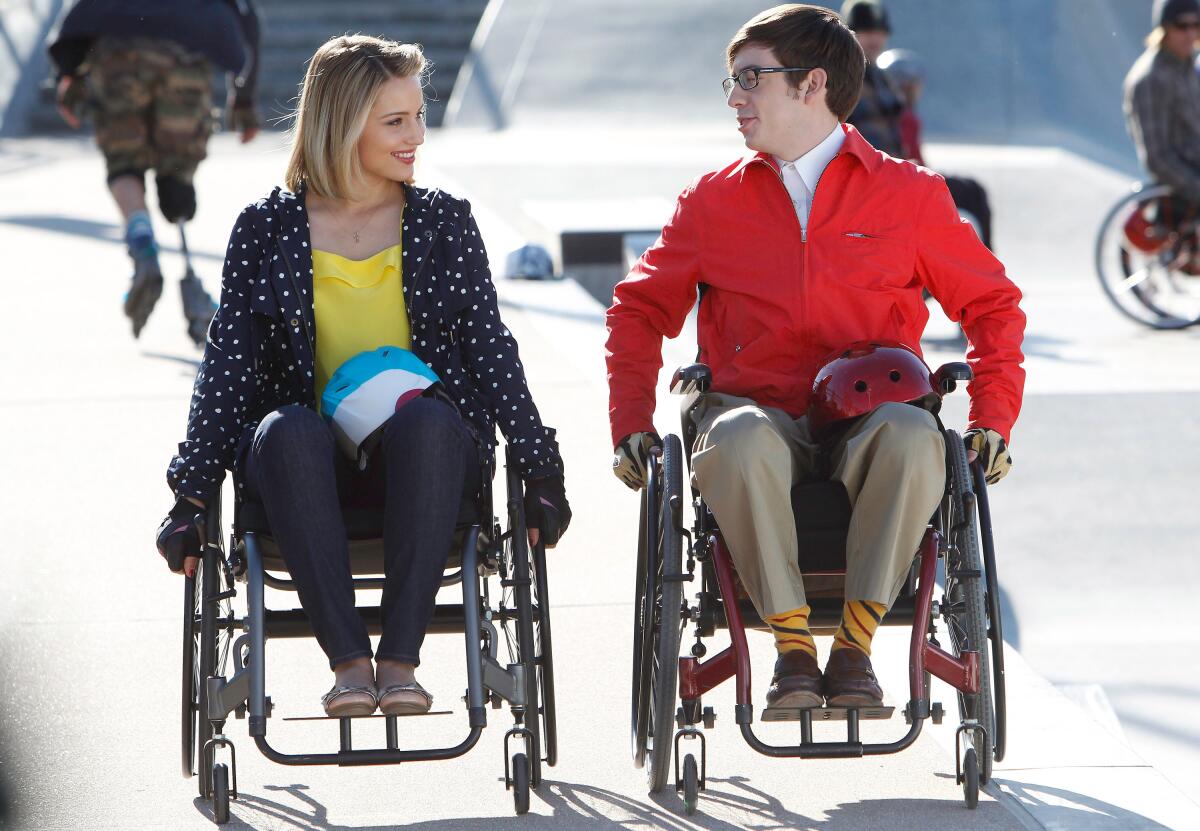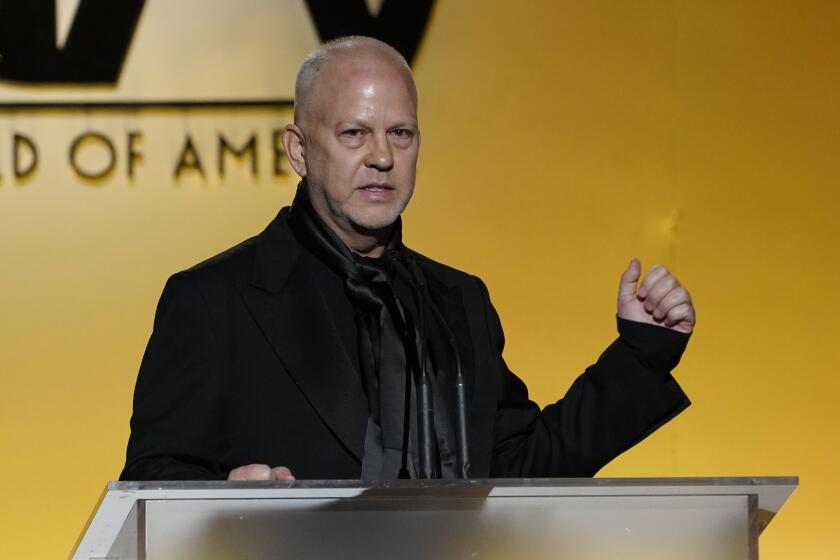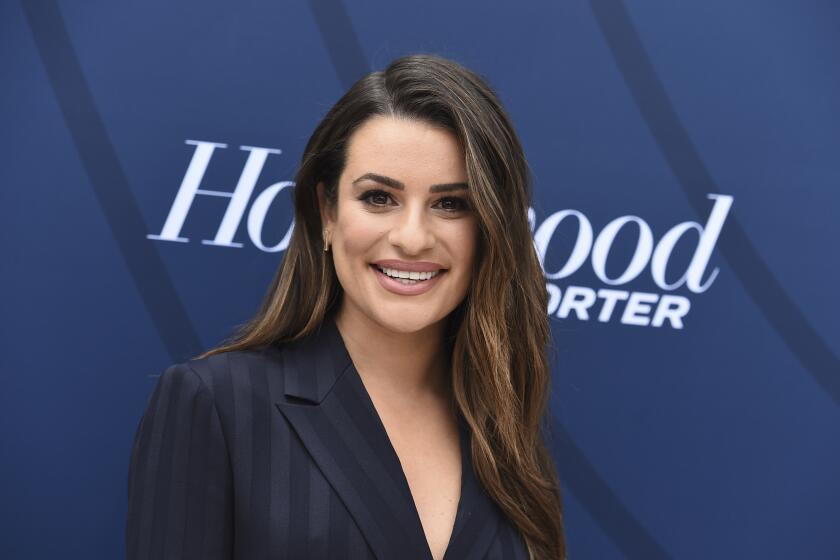‘Glee’ alum Kevin McHale says he wouldn’t play a character in a wheelchair now

- Share via
If “Glee” is ever rebooted, Kevin McHale is not signing up to be canceled.
“I don’t know if Artie could be in it,” McHale said Wednesday to Insider, talking about Artie Abrams, the character he played in the Fox musical series that ran from 2009 to 2015. “Knowing what we know now, I don’t think I should be playing a character that’s in a wheelchair. So, if they let me grow out ... my beard and play a different character, I’ll do it.”
Show creator Ryan Murphy floated the idea of a reboot last week during a podcast hosted by McHale and former co-star Jenna Ushkowitz, who played Tina Cohen-Chang on the show.
“I’m at the phase now with that show, you know, where it’s like, well, there’s been enough time. Like, maybe we should really reexamine it as a brand,” Murphy said on “And That’s What You Really Missed.” “You know, should we do a reboot of it in some way? Should we do a Broadway musical of it in some way?”
Ryan Murphy says the ‘Dahmer’ team tried and failed to reach victims’ families and friends. The Netflix series has been widely criticized — and viewed.
Murphy also said on the podcast that “Glee” was on the air for too long and probably should have ended after star Cory Monteith, who played singing jock Finn Hudson, died of a drug overdose in July 2013.
“Glee” drew criticism early on for its portrayal of a person with a disability, which a Guardian opinion writer in 2010 likened to blackface. The article pointed out a couple of “execrable” Glee episodes that were praised by nondisabled viewers but considered “offensive, appropriative and wildly inaccurate” by disabled audiences.
“The problems with ‘Glee’ highlight much larger issues in the entertainment industry,” the author wrote. “The representation of disabled persons is limited and often very bad, and disabled actors have few opportunities, in part because of the insistence on casting nondisabled actors in disabled roles. Another show airing in the U.S., ‘Covert Affairs,’ is also currently engaging in ‘cripface,’ and there’s a long history of casting nondisabled actors in disabled roles.”
After Lea Michele apologized for her on-set behavior, her former “Glee” costars aren’t letting it slide. Even a producer for the TV show has chimed in.
Jim Sheridan, director of 1989’s “My Left Foot,” which earned an Oscar for actor Daniel Day-Lewis in the role of a man with cerebral palsy, told Sky News last year, “I don’t think it’s right anymore” to cast able-bodied actors to play disabled characters.
“We’ve gone past that,” Sheridan continued. “In ‘My Left Foot,’ we had disabled kids in the movie and I could understand why Daniel stayed in character and never broke out. He wanted to respect them so he stayed in character the entire time for 20 weeks and that’s as far as he could go as an able-bodied person playing a disabled person.”
More to Read
The complete guide to home viewing
Get Screen Gab for everything about the TV shows and streaming movies everyone’s talking about.
You may occasionally receive promotional content from the Los Angeles Times.









